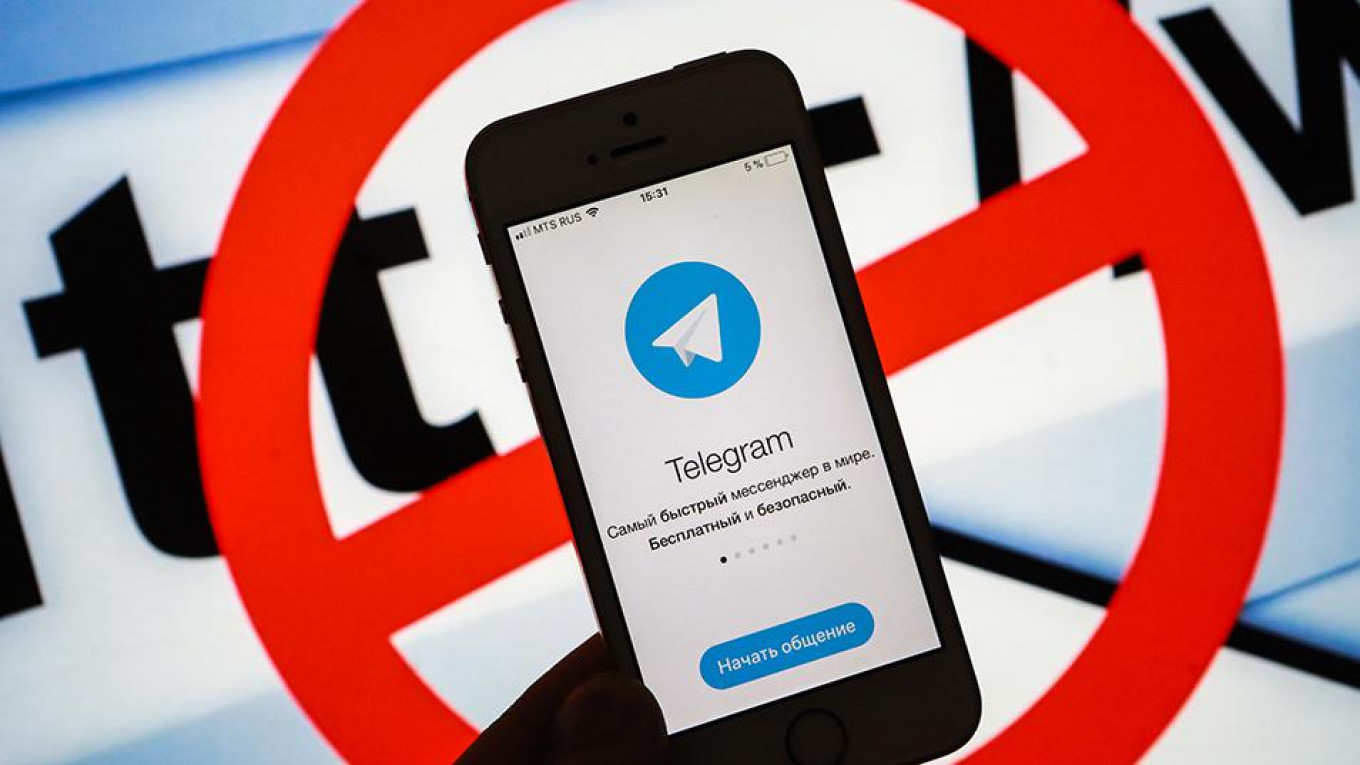Russia’s state media regulator is in talks with Amazon and Google as it attempts to gain the tech giants’ cooperation in blocking the Telegram messaging service.
Regulator Roskomnadzor began enforcing a court ordered ban on Telegram on April 16 after the messaging app refused to grant the Russian security services access to users’ encrypted messages. In its effort to block access to Telegram, Roskomnadzor has blacklisted almost 18 million Internet Protocol (IP) addresses, including those of Google and Amazon, disrupting the work of hundreds unrelated online services.
“Contact with Amazon has not yet led to positive results, perhaps for political reasons,” Roskomnadzor reported Wednesday, citing its deputy chief Vadim Subbotin following talks with IT representatives. Contact with Google “is, on the contrary, becoming more constructive, a substantive dialogue has begun,” Subbotin said.
Meanwhile, Russian researchers have written an open letter asking Prime Minister Dmitry Medvedev to put an end to the “carpet-bombing” of unaffiliated services.
Around 400 Russian businesses that use Google and Amazon services have experienced difficulties with data storage, payment, customer service, and other online systems, the Kommersant business daily reported Thursday.
They and the U.S. tech giants could each lose $1 billion by the end of 2018 if the blackout continues, Kommersant estimates. The newspaper anticipates higher demand for the cloud services of Russia’s state-controlled operator Rostelecom, Mail.ru Group, and Yandex domestic tech firms, as well as Microsoft.
Presidential Internet ombudsman Dmitry Marinichev told Kommersant that he expects a “snowball” of complaints from companies that have suffered under the Telegram ban.
Head of Russia’s Federal Anti-Monopoly Service Igor Artemyev expressed doubt in the success of the “rolling blackouts.”
“I hope that, as this goal is achieved, everything around us isn’t swept away,” state-run TASS news agency quoted him as saying.
A Message from The Moscow Times:
Dear readers,
We are facing unprecedented challenges. Russia's Prosecutor General's Office has designated The Moscow Times as an "undesirable" organization, criminalizing our work and putting our staff at risk of prosecution. This follows our earlier unjust labeling as a "foreign agent."
These actions are direct attempts to silence independent journalism in Russia. The authorities claim our work "discredits the decisions of the Russian leadership." We see things differently: we strive to provide accurate, unbiased reporting on Russia.
We, the journalists of The Moscow Times, refuse to be silenced. But to continue our work, we need your help.
Your support, no matter how small, makes a world of difference. If you can, please support us monthly starting from just $2. It's quick to set up, and every contribution makes a significant impact.
By supporting The Moscow Times, you're defending open, independent journalism in the face of repression. Thank you for standing with us.
Remind me later.






